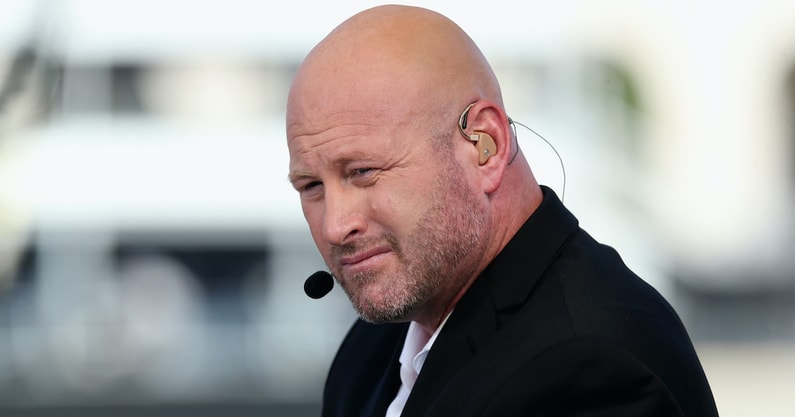Trent Dilfer: 20-hour rule is dumbest rule in college football, NIL magnifies it

Trent Dilfer did not mince his words when discussing the NCAA’s 20-hour rule as a guest on On3’s LeverUP NIL Show with Shannon Terry and Jim Cavale. Dilfer thinks the stipulation on offseason development time is detrimental and only being magnified with the allowance of NIL deals.
The rule, which limits the time coaches and players can spend together to 20 hours per week in the offseason, keeps players away from a place that is otherwise serving them well in Dilfer’s mind. And with NIL peddlers approaching players all the time with deals of varying worthiness, having more time spent with teammates training and practicing won’t hurt.
“Most of these college athletes, and my high school athletes, want to be nurtured. They want to get better, but they also want to be loved. They want father figures in their lives. They want community. They want to play ping pong together. They want to go to meetings,” Dilfer said. “They want to do these things and the NCAA is saying, ‘No, you can’t be in the building. No, you have to go, actually, where it’s dangerous. You have to go out in to the real world.’ Where all these other voices are pounding you about being selfish, making money, go do you, go be you, take care of yours. But when they’re in the building, it’s about others, it’s about development, it’s about reaching your best. And I’m like, you’ve gotta change that 20-hour rule so that the have nots feel like at least they have something.”
Dilfer’s 20-hour rule distaste came up as he, Terry and Cavale discussed how coaches handle locker room dynamics when you have differentiated tranches of players based on their earnings. There are now the super haves, the haves, and the have nots, as Dilfer put it, and that dynamic isn’t changing. Some players will be deemed more valuable than others by businesses marketing their products and that’s just reality, but Dilfer thinks the 20-hour rule is magnifying some of this.
As Dilfer mentioned, eliminating this time restriction gives the “have nots” — likely the walk ons and slept-on players lower on the depth chart — an olive branch for their own benefit, even if it isn’t monetary.
Top 10
- 1Breaking
Olivia Miles to transfer
ND star forgoes WNBA draft
- 2New
Fran Brown
Syracuse HC blasts NCAA
- 3
Elliot Cadeau
UNC transfer commits to Michigan
- 4
Bruce Pearl
Johni Broome injury update
- 5Hot
Kim Caldwell
Gets extension from Tennessee
Get the On3 Top 10 to your inbox every morning
By clicking "Subscribe to Newsletter", I agree to On3's Privacy Notice, Terms, and use of my personal information described therein.
“So we can’t change that dynamic. It’s just going to grow. You’re going to have the super haves, the haves and the have nots. And I don’t think that’s ever going to change,” Dilfer said. “The one thing a player wants, more than anything else, is to be developed. This is the No. 1 thing they want. A player comes to you and he wants to be his best. He wants to become a better player than he is now. The biggest hinderance to that right now is the 20-hour rule. The 20-hour rule is ridiculous. It’s the dumbest rule in college football. That a college coach only gets 20 hours a week to develop this player. Because remember, go back to my last conversation — if now you have all the time you needed to develop that player, and they’re in your building, well guess who the primary voice in their life is? The coaching staff. Now you can nurture more. And that’s the conversation that isn’t happening.”
This isn’t a problem reserved for small schools, either. Earlier in the show, Dilfer talked with Terry and Cavale about how top college quarterbacks Bryce Young and CJ Stroud are handling themselves well in the NIL space, and noted that even big dogs like Alabama and Ohio State can’t shield their players from bad actors trying to sign them to a deal.
“You say, well, at Ohio State, Alabama, they’re always in the building. No they’re not,” Dilfer said. “The season ends and they get in there for their training table, they get in there for their lift. They get in there maybe for offseason team building functions. But they have all these other voices besides Ryan Day and Nick Saban and Dabo Swinney and the good voices in their life, they have all these other voices that come in their life. And unfortunately, a lot of those voices are self-serving for that person, not the player.”